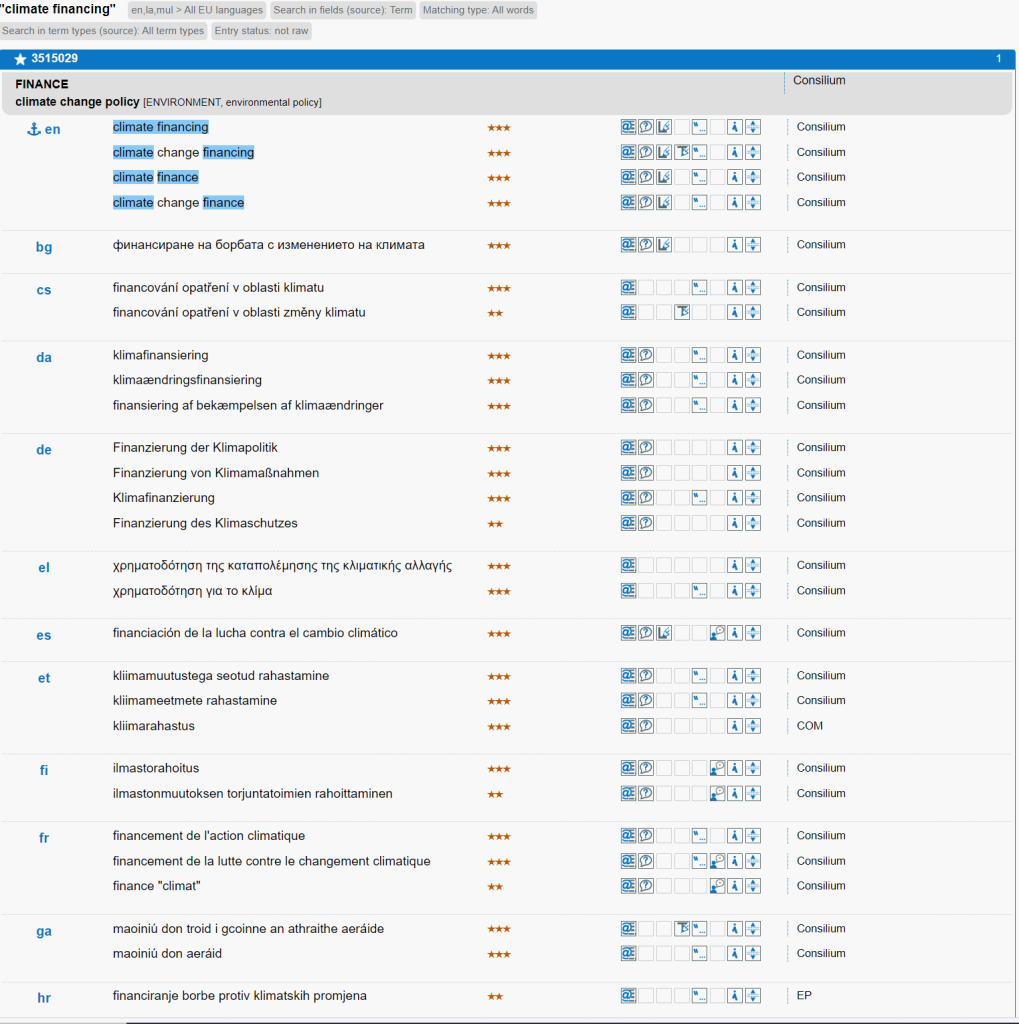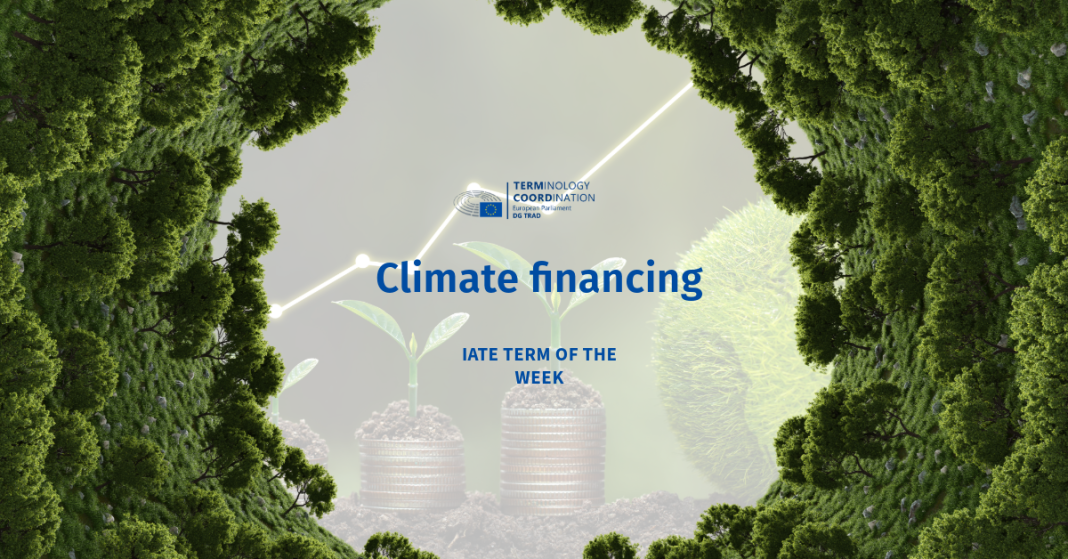Climate financing, or climate finance, encompasses financial resources and instruments aimed at supporting mitigation and adaptation actions to combat climate change. It involves public and private funding at various levels, ranging from local to international, to facilitate a transition to a low-carbon global economy and enhance resilience to climate impacts.
Climate financing draws from multiple sources, including public budgets, private investments, and international funds. Various instruments such as grants, green bonds, equities, debt swaps, and concessional loans are used to address the diverse needs of climate-related projects.

International entities like the Green Climate Fund (GCF), Global Environment Facility (GEF), and Adaptation Fund (AF) play a crucial role in providing developing countries with access to climate financing. Additionally, the EU, through its legislation and commitments, actively contributes to global climate finance efforts.
EU legislation mandates the integration of climate considerations into various policies, strategies, and financial instruments. This ensures that climate-related risks and opportunities are systematically taken into account across different sectors, further emphasizing the EU’s commitment to climate financing. The EU has established a robust legislative framework to support climate finance initiatives. This framework includes regulations, directives, and financial mechanisms aimed at mobilizing funds for climate action. Among them, the European Green Deal outlines the EU’s commitment to becoming climate-neutral by 2050, with climate finance as a key component.
Moreover, the EU allocates funds for climate-related projects through various channels, such as the European Investment Bank (EIB) and the European Bank for Reconstruction and Development (EBRD). Additionally, the EU’s Multiannual Financial Framework (MFF) dedicates a significant portion of its budget to climate-related expenditures.
The United Nations Development Programme (UNDP) collaborates with the EU to implement climate financing projects. This partnership focuses on aligning national financing strategies with EU legislation, using funds from international climate finance mechanisms, and supporting countries in meeting their climate targets.
Climate financing is a complex global endeavour that requires collaboration at international and regional levels. As the world continues to grapple with the impacts of climate change, the EU’s commitment and legislative initiatives play a crucial role in mobilizing financial resources and fostering a sustainable future.
Bibliography
UNDP Climate Promise. (2023). What is climate finance and why do we need more of it?. Retrieved from UNDP Climate Promise – News and Stories: https://climatepromise.undp.org/news-and-stories/what-climate-finance-and-why-do-we-need-more-it
United Nations Climate Change. (2024). Introduction to Climate Finance. Retrieved from United Nations Climate Change – Topics: https://unfccc.int/topics/introduction-to-climate-finance#:~:text=Climate%20finance%20refers%20to%20local,that%20will%20address%20climate%20change.
Written by Marina Scelta
Born in Palermo (Italy), passionate about learning languages since a very young age, she studied Interpreting and Translation for English and French in her hometown, then moved to London for a Master’s Degree in the same domain (University of Westminster), eager to earn some first-hand experience in an international environment. In 2020, she decided to move back to Italy, where she applied for her second Master’s Degree in Foreign Languages for International Communication (Università degli Studi di Torino). In 2021, she had the opportunity to move to Strasbourg as an Erasmus student for almost one year, at the end of which she made of that city her new home. Currently in the process of writing her master’s thesis, in her free time Marina enjoys travelling, singing, walking in the nature, solving crosswords puzzles, and mostly looking around for vegan food.

